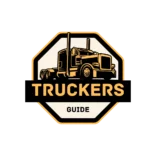The transportation industry offers exciting opportunities for those looking to manage logistics without owning a single truck. Two popular career paths are freight brokers and dispatchers. While they often work closely together, their roles, salaries, and career paths are quite different. Let’s break it down — and explore how you can become a freight broker and dispatcher, even online!
Table of Contents
Freight Broker vs Dispatcher: What’s the Difference?
A freight broker acts as a middleman between shippers (who need to transport goods) and carriers (who have the trucks to move them). Brokers negotiate rates, find loads for carriers, and ensure smooth communication between all parties.
A dispatcher, on the other hand, works directly for trucking companies or independent owner-operators. Their job is to find loads, plan routes, manage driver schedules, and solve problems on the road.
In short:
- Freight Broker = Middleman between shipper and carrier
- Dispatcher = Manager for trucking companies or independent drivers
Both roles require strong communication, negotiation skills, and knowledge of the trucking industry.
Freight Broker vs Dispatcher Salary: Who Earns More?
When considering a career, salary is an important factor. Let’s look at the earning potential:
- Freight Broker Salary: Freight brokers typically earn a commission based on the total value of the load they arrange. According to industry estimates, the average freight broker salary in the U.S. ranges from $45,000 to over $100,000 per year, depending on experience, network, and market conditions. Successful brokers who run their own agencies can earn even more.
- Dispatcher Salary: Dispatchers usually earn a fixed salary or a small percentage of each load’s value. The average dispatcher salary is typically between $35,000 and $65,000 per year. Those working independently with multiple owner-operators might earn higher commissions.
Bottom line: Freight brokers often have higher earning potential, but dispatchers can build steady, reliable income with fewer startup costs.
How to Become a Freight Broker and Dispatcher
Starting a career as a freight broker or dispatcher doesn’t necessarily require a college degree, but it does take training, licensing (for brokers), and business skills.
Steps to Become a Freight Broker:
- Learn the Industry: Understand transportation laws, load boards, and freight operations.
- Register Your Business: Set up your brokerage as a legal business (LLC, Corporation, etc.).
- Get a Freight Broker License: Apply for a Motor Carrier Authority (MC Authority) through the FMCSA (Federal Motor Carrier Safety Administration).
- Secure a Surety Bond: Brokers must have a $75,000 surety bond (BMC-84).
- Find Carriers and Shippers: Build relationships and start brokering deals.
Steps to Become a Dispatcher:
- Learn Dispatching Basics: Understand load boards, trucking regulations, and negotiation tactics.
- Set Up Your Business: You can work as a freelance dispatcher or start a dispatch service.
- Get Training: While not legally required, dispatcher training can help you get started faster.
- Find Drivers and Build a Network: Market your services to owner-operators and small fleets.
Can You Be a Freight Broker and Dispatcher at the Same Time?
Yes, you can — but it comes with challenges.
Operating as both a freight broker and dispatcher can open up multiple streams of income. However, you must be careful to manage conflicts of interest. A broker must stay neutral between shippers and carriers, while a dispatcher represents the carrier’s best interests.
Some professionals start as dispatchers, build strong industry contacts, and later transition into brokering. Others manage separate businesses for each role to avoid legal or ethical issues.
How to Become a Freight Broker and Dispatcher Online
Thanks to technology, it’s easier than ever to start a career in logistics from home:
- Online Training Courses: Many accredited programs teach you how to become a freight broker and dispatcher online in just a few weeks.
- Virtual Load Boards: You can access loads and carriers digitally.
- Remote Work: As long as you have a laptop, phone, and internet connection, you can work from anywhere.
Look for courses that offer certifications, live training sessions, and post-graduation support to give you the best start.
Summary Table: Freight Broker vs Dispatcher
| Aspect | Freight Broker | Dispatcher |
|---|---|---|
| Role | Middleman between shipper and carrier | Manages loads and routes for trucking companies |
| Employer | Self-employed or brokerage agency | Trucking companies or owner-operators |
| License Required | Yes (Freight Broker License from FMCSA) | No license required |
| Average Salary | $45,000 – $100,000+ annually | $35,000 – $65,000 annually |
| Primary Focus | Negotiating between parties | Managing carrier operations |
| Income Structure | Commission-based | Salary or small commission per load |
| Startup Cost | Moderate to High (due to bonding and licensing) | Low to Moderate (mainly business setup costs) |
Final Thoughts
Whether you choose to become a freight broker, a dispatcher, or even both, the logistics industry offers a wealth of opportunity. With dedication, the right training, and a strong work ethic, you can build a rewarding career — no trucking required!
Faqs
How long does it take to become a freight broker or dispatcher?
You can complete freight broker or dispatcher training in as little as 30-60 days. Setting up a business and building a client network might take a few additional months.
Do you need a license to be a dispatcher?
No, dispatchers do not need a license. However, understanding DOT regulations and logistics operations is crucial for success.
Can you start freight brokering or dispatching with no experience?
Yes, but training is highly recommended. Many online courses provide step-by-step guidance for beginners.
How much does it cost to become a freight broker?
On average, setting up a freight brokerage can cost between $3,000 to $5,000, including licensing, bonding, and initial setup expenses.
What skills are important for freight brokers and dispatchers?
Communication, negotiation, time management, problem-solving, and customer service skills are vital for both careers.



